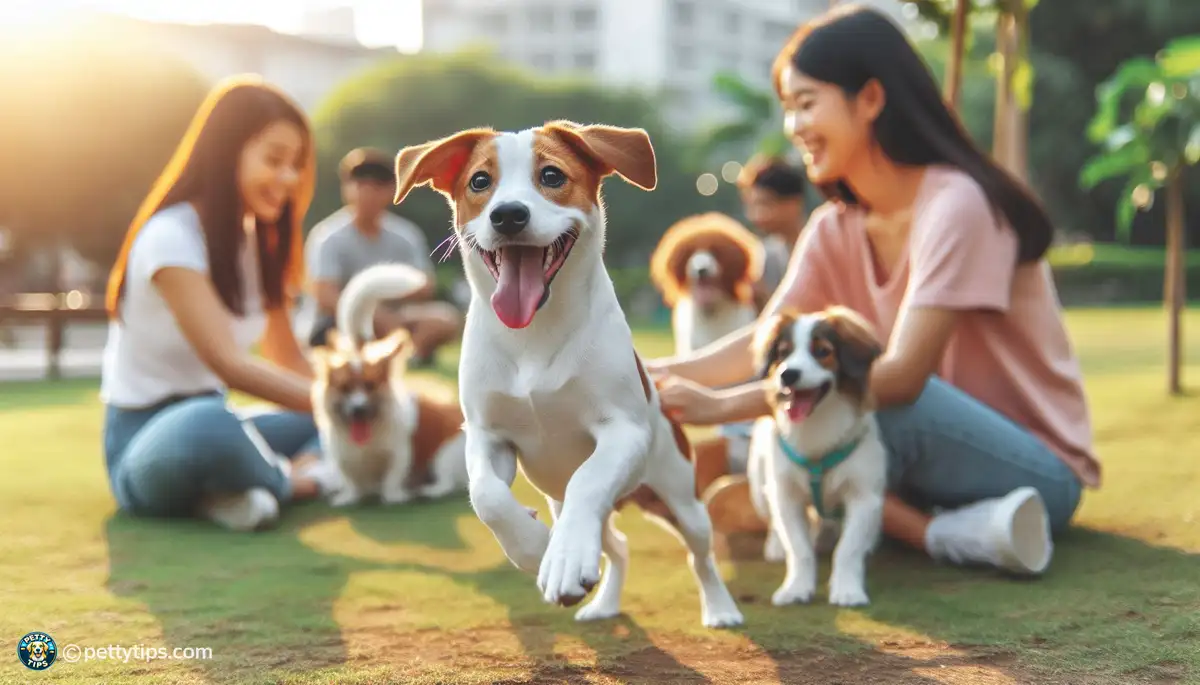
Keeping Your Dog Hydrated on the Road: Water and Refreshment Tips
Miriam Ramírez - Sep 21, 2024 - 6 min read


Socialization is more than just letting your dog interact with other dogs at the park. It’s a vital aspect of their development that influences their behavior, temperament, and overall well-being. This process involves exposing your furry friend to various environments, people, animals, sounds, and experiences in a positive and controlled manner. By doing so, you help them become well-adjusted and confident companions.
The importance of early socialization cannot be overstated. During the critical developmental period between 3 and 14 weeks of age, puppies are particularly receptive to new experiences. Exposing them to different stimuli during this time can help prevent fearfulness, aggression, and anxiety later in life. It lays the foundation for them to navigate the world with ease and adaptability.
Socialization builds your dog’s confidence and resilience, enabling them to handle various situations calmly and without fear. By gradually introducing them to different people, places, and situations, you teach them to remain calm and composed amidst unfamiliarity. This resilience is invaluable, especially in environments with loud noises, crowded spaces, or other potentially stressful stimuli.
Controlled exposure involves gradually introducing your dog to new stimuli in a safe and controlled environment. Whether it's meeting new people, encountering other animals, or exploring unfamiliar places, it's essential to monitor your dog's reactions and ensure they feel comfortable and secure throughout the process. Start with low-intensity exposures and gradually increase the level of challenge as your dog becomes more confident.
positive reinforcement is a powerful tool in socialization. By rewarding your dog's calm and confident behavior with treats, praise, or play, you reinforce their positive associations with new experiences. This encourages them to approach unfamiliar situations with enthusiasm rather than apprehension. Consistency and patience are key to effectively using positive reinforcement in socialization efforts.
Desensitization involves gradually exposing your dog to stimuli that trigger fear or anxiety in a controlled and systematic manner. By starting with mild exposure and gradually increasing the intensity or duration over time, you help your dog overcome their fears and anxieties. This approach can be particularly useful for dogs with specific phobias or aversions, such as fear of loud noises or strangers.
Proper socialization can significantly improve your dog’s behavior. Dogs that are well-socialized are less likely to exhibit aggression, fearfulness, or anxiety in various situations. They are more relaxed, adaptable, and less likely to react negatively to unfamiliar stimuli. This makes them easier to manage and more enjoyable companions in both public and private settings.
Socialization also enhances your dog’s communication skills, enabling them to interact effectively with other dogs, animals, and people. Through positive interactions, they learn how to interpret social cues, body language, and vocalizations, allowing them to communicate their own intentions clearly. This promotes smoother and more harmonious interactions with both humans and other animals.
Socialization strengthens the bond between you and your dog. Through shared experiences and positive reinforcement, you build trust, mutual respect, and a deeper connection with your furry friend. This bond is essential for effective communication, obedience, and overall well-being. It fosters a strong sense of companionship and partnership that enriches both your lives.
Fear and anxiety are common challenges in socialization, particularly in dogs that have not been properly exposed to various stimuli during their critical developmental period. These emotions can manifest as aggression, avoidance, or excessive vocalization in response to unfamiliar people, animals, or environments. Patience, positive reinforcement, and gradual exposure are essential in helping fearful or anxious dogs overcome their apprehensions.
Aggression is another challenge that can arise from inadequate socialization. Dogs that have not been properly exposed to other dogs, animals, or people may exhibit aggressive behaviors out of fear, insecurity, or territoriality. Early and ongoing socialization efforts, combined with positive reinforcement and proper training, can help address and manage aggression issues effectively.
Overstimulation can occur when dogs are exposed to too many new stimuli or experiences at once, leading to stress, anxiety, or behavioral problems. It's essential to introduce new stimuli gradually and in a controlled manner, allowing your dog to acclimate and adjust at their own pace. Monitoring your dog's reactions and providing plenty of opportunities for rest and relaxation are crucial in preventing overstimulation during socialization.
Start socializing your puppy as early as possible, ideally between 3 and 14 weeks of age. This critical developmental period lays the foundation for their future behavior and temperament, making early socialization efforts essential for a well-adjusted and confident companion.
Consistency is key in socialization. Make socialization a regular part of your dog’s routine, incorporating new experiences, environments, and interactions on a consistent basis. This helps reinforce positive behaviors and prevents regression or setbacks in their socialization progress.
If you encounter challenges or difficulties in socializing your dog, don't hesitate to seek professional guidance from a qualified trainer or behaviorist. They can provide personalized advice, guidance, and support to help you address specific issues and ensure successful socialization outcomes for your furry friend.
Socialization is a key component of responsible dog ownership. By exposing your furry friend to various experiences, environments, and interactions in a positive and controlled manner, you help them become well-adjusted, confident, and happy companions. From early socialization efforts to ongoing reinforcement throughout their lives, prioritizing socialization enhances your dog’s behavior, communication skills, and bond with you, ultimately enriching both of your lives. So, embrace the journey of socialization and watch your dog thrive in the world around them.